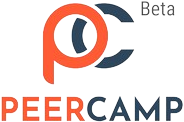Class 3 ICSE – All Subjects (Except Hindi): Fun & Interactive Learning Across Core Topics! (Full Course)
- All Levels
- 104 hours
- 6-10 Years
-
 Online Classes (1-to-1)
Online Classes (1-to-1)
 INR 2000.00 Monthly
INR 2000.00 Monthly

Baishali Chakraborty
India |
Give your child the perfect academic start with the Class 3 ICSE Full Curriculum (All Subjects Except Hindi) — a fun, engaging, and concept-based program designed to strengthen foundational skills.
Through interactive lessons, real-life examples, and creative exercises, students will explore:
English Language & Literature: Grammar, vocabulary, creative writing, reading comprehension, poetry, and storytelling to enhance fluency and confidence.
Mathematics: Numbers, basic operations, fractions, geometry, measurement, money, time, and logical problem-solving made easy with fun activities.
Science: Living and non-living things, plants, animals, the human body, air, water, and energy concepts to spark curiosity.
Social Studies: History, Civics, and Geography lessons to build awareness about people, communities, and the world around us.
General Knowledge: Fun facts, current affairs, famous personalities, and environmental awareness to keep learning exciting.
This course ensures balanced learning, encourages curiosity, and builds confidence — preparing students to excel in academics and beyond!
Class 5 ICSE – Master English, Math, Science & More! (Except Hindi) (Full Course)
- All Levels
- 104 hours
- 6-10 Years
-
 Online Classes (1-to-1)
Online Classes (1-to-1)
 INR 2000.00 Monthly
INR 2000.00 Monthly

Baishali Chakraborty
India |
Give your child a strong academic foundation with the Class 5 ICSE Full Curriculum (All Subjects Except Hindi)! This course is designed to make learning fun, engaging, and easy to understand while helping students build confidence across all major subjects — English, Math, Science, and Social Studies.
Through interactive lessons, activities, and concept-based learning, students will explore:
Curriculum Structure
1. English
- English Language & Literature
- Grammar, Vocabulary, and Writing Skills
- Reading Comprehension and Creative Writing
- Prose, Poetry, and Drama from the ICSE Curriculum
2. Mathematics
- Numbers, Fractions, and Decimals
- Geometry and Measurement
- Time, Money, and Data Handling
- Word Problems and Logical Reasoning
3. Science
- Living and Non-Living Things
- Plants, Animals, and Human Body Systems
- Force, Work, Energy, and Simple Machines
- Air, Water, and Natural Resources
4. Social Studies (History, Civics & Geography)
- Early Civilizations and Freedom Struggle
- Local and National Government
- Earth, Maps, and Our Environment
- Continents, Oceans, and India’s Physical Features
Class 6 CBSE SST Full Curriculum – Learn History, Geography & Civics with Fun (Full Course)
- All Levels
- 60 hours
- 6-10 Years
-
 Online Classes (1-to-1)
Online Classes (1-to-1)
 INR 3499.00 Monthly
INR 3499.00 Monthly

Nikitha R
India |
Class 6 CBSE Social Science: Explore history, geography, and civics with engaging lessons, real-life connections, and interactive activities designed to build strong foundations, critical thinking, and academic success.
Full Social Science Curriculum Structure
History – Explore the Past
- What, Where, How, and When – Discover how history is studied
- From the Beginning of Time – Travel back to early humans and their lifestyle
- The First Cities – Learn about Harappan civilization and city life
- Kingdoms, Kings, and Early Republic – Explore early kingdoms and republics
- New Empires and Kingdoms – Dive into the Gupta Empire and cultural growth
- Changing Traditions – Understand society and culture in early medieval India
Geography – Discover Our World
- The Earth and the Solar System – Explore planets and our universe
- Globe: Latitudes and Longitudes – Learn how to read maps like a pro
- Motions of the Earth – Understand day, night, and seasons
- Maps – Identify landforms and important places
- Major Landforms of the Earth – Mountains, rivers, plains, and more
- Our Country – India – States, capitals, and natural resources
Civics – Be an Active Citizen
- Understanding Diversity – Celebrate India’s culture, language, and religion
- Diversity and Discrimination – Learn about equality and respect
- What is Government? – Explore local, state, and central government
- Panchayati Raj – Understand village administration
- Rural and Urban Administration – Discover how towns and cities are run
- Laws and Social Justice – Learn rights, duties, and the importance of laws
Complete Physics Course for Class 12 with Live Sessions (Full Course)
- All Levels
- 50 hours
- 16-18 Years
-
 Online Classes (Group)
Online Classes (Group)
 INR 6000.00 Monthly
INR 6000.00 Monthly

Venkata Vijaya Kumar Veluri
India |
This Class XII CBSE Physics course offers a comprehensive understanding of all key concepts, integrating theory with practical applications. It prepares students for board exams and competitive exams like JEE, enhancing problem-solving skills and conceptual clarity.
Curriculum Structure
Unit I: Electrostatics
- Electric charges and fields – Electric charges, conservation, Coulomb’s law, force between charges, superposition principle, electric field, field lines, dipole, torque, flux, Gauss’s theorem and its applications.
- Electrostatic potential and capacitance – Potential, equipotential surfaces, potential due to point charge/dipole/system, potential energy, conductors, dielectrics, capacitors, series/parallel combinations, energy in capacitor.
Unit II: Current Electricity
- Electric current, drift velocity, mobility, Ohm’s law, resistivity, conductivity, temperature dependence, internal resistance, emf, combination of cells, Kirchhoff’s laws, Wheatstone bridge, metre bridge, potentiometer.
Unit III: Magnetic Effects of Current and Magnetism
- Moving charges and magnetism – Biot-Savart law, Ampere’s law, force on current-carrying conductor, torque on coil, galvanometer, conversion to voltmeter/ammeter.
- Magnetism and matter – Bar magnet, earth’s magnetism, magnetic elements, dia-, para-, and ferromagnetic substances, hysteresis.
Unit IV: Electromagnetic Induction and Alternating Currents
- Faraday’s law, induced emf, Lenz’s law, eddy currents, self and mutual induction, AC circuits (resistor, inductor, capacitor), reactance, impedance, LC oscillations, resonance, transformer.
Unit V: Electromagnetic Waves
- Need of displacement current, electromagnetic waves and their characteristics, transverse nature, spectrum (radio to gamma rays).
Unit VI: Optics
- Ray optics and optical instruments – Reflection, refraction, total internal reflection, lens formula, magnification, power, microscopes, telescopes.
- Wave optics – Huygens’ principle, interference, Young’s double slit, diffraction (single slit), resolving power, polarization, Brewster’s law.
Unit VII: Dual Nature of Radiation and Matter
- Photoelectric effect, experimental study, Einstein’s equation, matter waves, de Broglie relation, Davisson-Germer experiment.
Unit VIII: Atoms and Nuclei
- Atoms – Rutherford, Bohr model, energy levels, hydrogen spectrum.
- Nuclei – Composition, size, mass-energy relation, binding energy, radioactivity (α, β, γ decay), nuclear fission and fusion.
Unit IX: Electronic Devices
- Semiconductors (intrinsic, extrinsic), p–n junction diode, I–V characteristics, junction diode as rectifier, LED, photodiode, solar cell, Zener diode, transistor characteristics, transistor as amplifier/switch.
Foundations of Physics – ICSE Class 6 Made Simple & Fun (Full Course)
- Intermediate
- 16 hours
- 6-15 Years
-
 Online Classes (Group)
Online Classes (Group)
 INR 1000.00 Monthly
INR 1000.00 Monthly

Sanjeev Singh
India |
Welcome to ICSE Class 6 Physics, where science becomes a journey of curiosity and discovery!
This course is designed to introduce young learners to the fascinating world of physical science. From understanding how objects move and interact, to exploring light, electricity, and simple machines, each topic is taught using easy language, visual examples, and fun activities. Whether you're learning at home or in the classroom, this course lays a strong foundation for future science learning and builds critical thinking skills from the ground up.
Course Structure
1. Introduction to Physics
- Definition of Physics
- Importance in daily life
- SI units and measurement tools
2. Physical Quantities and Measurements
- Measurement of length, mass, time, temperature
- Units and instruments
3. Motion and Types of Motion
- Rest and motion
- Types: linear, circular, periodic, rotational
- Distance and displacement
- Speed (concept only)
4. Force
- Definition and effects
- Types: contact, non-contact
- Friction: advantages, disadvantages, control
5. Simple Machines
- Definition and need
- Types: lever, pulley, inclined plane, wheel & axle, wedge, screw
6. Light
- Sources and properties
- Reflection and shadows
- Transparent, translucent, opaque objects
- Pinhole camera
7. Magnetism
- Types and properties of magnets
- Magnetic vs non-magnetic materials
- Magnetic poles and compass
- Uses of magnets
8. Electricity
- Electric cell and circuit
- Conductors and insulators
- Safe use of electricity
- Simple electric activities
Let’s make physics your favorite subject—one concept at a time!
ICSE Class 1 Complete Curriculum – English, Math, EVS & More (Full Course)
- Beginner
- 156 hours
- 6-18 Years
-
 Online Classes (1-to-1)
Online Classes (1-to-1)
 INR 300.00 Per Lesson
INR 300.00 Per Lesson

Baishali Chakraborty
India |
Welcome to the ICSE Class 1 Full Curriculum (All Subjects Except Hindi) — a fun and engaging program designed to build strong foundations in English, Math, EVS, Computers, and Art. Through interactive lessons, hands-on activities, and creative learning, students develop essential skills, confidence, and a love for learning while following the ICSE framework.
ICSE Class 1 Curriculum Structure
English: Focus on stories, poems, rhymes, and basic grammar concepts such as singular/plural, articles, and simple writing exercises.
Mathematics: Covers foundational topics including counting, number names, addition and subtraction, numbers up to 100, basic shapes, and patterns.
Environmental Studies (EVS): Introduces children to self, family, home, school, neighborhood, and their immediate surroundings.
Computer Studies: Introduction to computers, Basic parts and their functions, Using a mouse and keyboard
Arts Education: Drawing and coloring basics, Craft activities to enhance creativity and motor skills
ICSE Class 2 Full Curriculum – All Subjects Except Hindi (Full Course)
- All Levels
- 104 hours
- 6-10 Years
-
 Online Classes (1-to-1)
Online Classes (1-to-1)
 INR 2000.00 Monthly
INR 2000.00 Monthly

Baishali Chakraborty
India |
Welcome to the ICSE Class 2 Full Curriculum (All Subjects Except Hindi) — a comprehensive and engaging learning journey designed to strengthen foundational skills in English, Math, EVS, Computers, and Art. Through stories, activities, and interactive lessons, students build curiosity, creativity, and confidence while aligning with the ICSE academic framework.
Course Structure:
1. English Language & Literature
- Reading short stories, poems, and rhymes
- Vocabulary and grammar basics (nouns, pronouns, verbs, adjectives, prepositions, punctuation)
- Simple sentence construction and creative writing
- Reading comprehension and spelling practice
2. Mathematics
- Number system up to 1000
- Basic operations: addition, subtraction, multiplication, division
- Place value and number patterns
- Measurement: length, weight, and time
- Shapes, money, and simple word problems
- Fun puzzles, math games, and interactive problem-solving
3. Environmental Studies (EVS)
- My family, home, and neighborhood
- School, community helpers, and festivals
- Plants, animals, and natural resources
- Food, shelter, transportation, and communication
- Weather, seasons, and good habits
- Safety rules and cleanliness
4. Computer Studies
- Introduction to computers and their uses
- Basic parts and functions of a computer
- Using the mouse and keyboard
- Understanding desktop icons and drawing tools
5. Art & Craft
- Drawing and coloring activities
- Basic sketching and pattern making
- Paper folding, cutting, and craftwork
- Creative projects to enhance imagination and fine motor skills
ICSE Class 4 Full Curriculum – All Subjects Except Hindi (Full Course)
- All Levels
- 104 hours
- 6-10 Years
-
 Online Classes (1-to-1)
Online Classes (1-to-1)
 INR 2000.00 Monthly
INR 2000.00 Monthly

Baishali Chakraborty
India |
Welcome to the ICSE Class 4 Full Curriculum (All Subjects Except Hindi) — a comprehensive and engaging course designed to strengthen students’ academic foundation while nurturing curiosity and creativity.
This program covers English, Mathematics, Science, Social Studies, General Knowledge, and Moral Science, aligned with the ICSE curriculum. Through interactive lessons, real-life examples, and fun activities, students will develop critical thinking, problem-solving, and communication skills.
Each subject focuses on conceptual clarity and application-based learning, helping children build confidence and a lifelong love of learning.
Curriculum Structure
English Language & Literature
- Grammar: Nouns, Verbs, Adjectives, Tenses, and Punctuation
- Vocabulary and Sentence Formation
- Reading Comprehension and Creative Writing
- Prose and Poetry from ICSE Texts
Mathematics
- Numbers up to 10,000 and Place Value
- Addition, Subtraction, Multiplication, and Division
- Fractions, Geometry, and Measurement
- Time, Money, and Data Handling through Fun Activities
Science
- Living and Non-Living Things
- Plants, Animals, and Their Habitats
- Human Body and Sense Organs
- Air, Water, Weather, and Simple Machines
Social Studies (History, Civics & Geography)
- Early Humans and Our Heritage
- Local Government and Community Helpers
- The Earth, Maps, and Directions
- Our Country – India: States, Festivals, and Landforms
General Knowledge & Moral Science
- Interesting Facts and Current Affairs
- Good Manners, Discipline, and Respect
- Stories with Moral Lessons
ICSE English Grammar & Writing Skills (Classes 5–8) (Full Course)
- Beginner
- 126 hours
- 6-15 Years
-
 Online Classes (Group)
Online Classes (Group)
 INR 1500.00 Weekly
INR 1500.00 Weekly

Srinandan Murthy
India |
Topics
1.) Sentence Basics & Parts of Speech (Revision)
- Types of sentences, subject-predicate, nouns, pronouns, verbs, adjectives, adverbs, prepositions, conjunctions, interjections (I plan to start light start — revise Class 4 concepts, identify weak areas)
2.) Nouns & Pronouns in Detail
- Types of nouns (common, proper, abstract, collective, material, countable/uncountable), number, gender, possessives; Pronoun types and agreement.
3.) Verbs—Forms & Tenses
- Main/auxiliary verbs, transitive/intransitive, regular/irregular verbs; Simple present, past, future; continuous and perfect aspects
4.) Tenses Continued & Modals
- Perfect continuous tenses, sequence of tenses, modal verbs (can, could, may, might, must, shall, should, will, would, ought to, need, dare) (I aim to teach how to link with spoken English corrections.)
5.) Adjectives & Adverbs
- Degrees of comparison, position of adjectives, types of adverbs, comparative forms, and common mistakes
6.) Prepositions & Conjunctions
- Preposition types (place, time, cause, means, accompaniment); Coordinating, subordinating, correlative conjunctions. Focus on usage in sentences
7.) Articles, Determiners & Quantifiers
- Definite, indefinite, zero article; each, every, some, any, few, little, much, many, all, most
8.) Active & Passive Voice
- Rules for all tenses, changing direct to indirect instructions, and avoiding awkward passives
9.) Direct & Indirect Speech
- Statements, questions, commands, exclamations.
10.) Transformation of Sentences
- Affirmative/negative, degree of comparison, combining sentences, question tags, simple/compound/complex
11.) Punctuation & Capitalisation
- Full stop, comma, semicolon, colon, apostrophe, quotation marks, dash, brackets
12.) Error Correction & Editing
- Subject-verb agreement, misplaced modifiers, tense shifts, pronoun errors, and preposition errors
13.) Exam Writing Integration
- Apply grammar to composition, notice writing, email, and comprehension answers.
The preparation also consists of
- Reviewing common errors and conducting periodic revision tests.
- Mock grammar paper and past paper practice.
ICSE English Grammar & Writing Skills (Classes 9-10) (Full Course)
- Beginner
- 120 hours
- 11-15 Years
-
 Online Classes (Group)
Online Classes (Group)
 INR 1500.00 Weekly
INR 1500.00 Weekly

Srinandan Murthy
India |
Topics
1.) Sentence Structure & Parts of Speech
- Clause types, phrase types, subject-verb agreement, and common ICSE pitfalls
2.) Tenses & Sequence of Tenses
- All 12 tenses; perfect and perfect continuous aspects; tense shifts; sequence in reported speech
3.) Modals & Conditionals
- Modal verbs (can, could, shall, should, etc.); zero, first, second, third conditionals; mixed conditionals
4.) Active–Passive Voice
- Voice changes for all tenses, imperatives, modals; avoiding awkward passives
5.) Direct–Indirect Speech
- Statements, questions, commands, exclamations; advanced tense & pronoun changes
6.) Transformation of Sentences – Part 1
- Affirmative/negative, question tags, removing “too…to” and “so…that” conversions
7.) Transformation of Sentences – Part 2
- Degrees of comparison, simple/compound/complex, joining & splitting sentences
8.) Prepositions & Conjunctions
- Preposition usage in idioms & fixed expressions; subordinating vs coordinating conjunctions
9.) Punctuation & Capitalisation
- ICSE punctuation rules: comma, semicolon, colon, apostrophe, dash, quotation marks
10.) Error Correction & Editing
- Common ICSE grammar errors: tense, preposition, pronoun, articles, and parallelism
11.) Applied Grammar in Writing
- Using grammar for essays, letters, notices, emails, and comprehension answers
12.) Past Paper Practice & Mock Tests
- Timed grammar section practice; feedback on mistakes
The preparation also consists of
- Reviewing common errors and conducting periodic revision tests.
- Mock grammar paper and past paper practice.


















 Academics
Academics Tech Skills
Tech Skills Soft Skills
Soft Skills Hobbies & Wellness
Hobbies & Wellness
